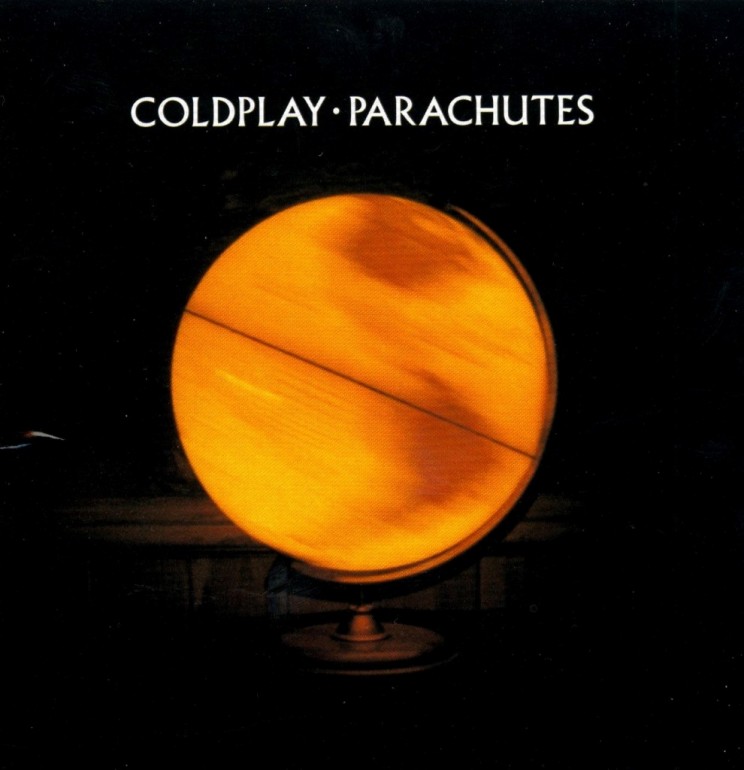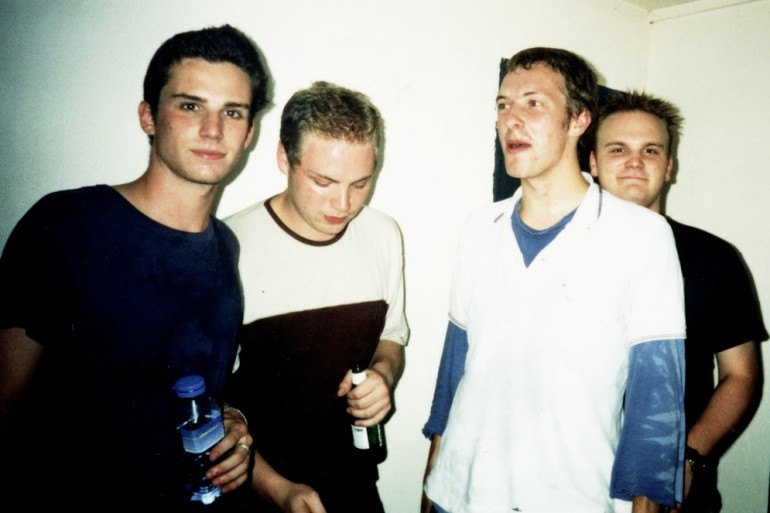
It felt like a classical case of ‘something went wrong along the way’ the last time I personally had the opportunity of attending a Coldplay show. I found myself in a giant stadium with an enormous stage during the group’s world tour, supporting 2011’s Mylo Xyloto album. As the show starts the air is soon filled with confetti, giant balloons and laser beams. Later on there have been also glowing wristbands. Chris Martin and his band performed their greatest hits in the middle of that tornado with Yellow marking the only testament of the band’s debut album Parachutes on that evening. The whole scenery and its ‘over the top’ character couldn’t be further away from the band’s roots. When I first got introduced to Coldplay over one decade earlier I surely didn’t expect them to end up being the most successful band of the past decade, on the same level like their role models U2. Well, nobody probably did.
It was really hard to predict when Parachutes was released on the 10th of July in the year 2000. Still, in the end it might not be that surprising after all. Let’s face it: the slowly but steady rising worldwide praise (resulting in the winning of both, a Brit Award and a Grammy) didn’t come from nothing. Except for Yellow and the uplifting closing track Everything’s Not Lost the Coldplay debut wasn’t recorded for a performance in front of a massive crowd. It’s a quite intimate and reduced record, one that draws its quality from actually not needing laser beams and big balloons. In the end it was a silent revolution by four shy young lads that shook the music world in a more subliminal way. Following the aftermath of the 90s Britpop wave it turned things around as it introduced the world to the power of intimate piano-driven guitar-pop, showcasing something that would later define the sound of the whole decade and plenty of artists that followed that recipe Coldplay made famous. A lot of young acts like KEANE, SNOW PATROL or THE FRAY used that scheme to get successful, resulting in some of the most annoying songs of the past decade. Remember Bad Day by Daniel Powter. Well, you do now. For music critics all over the world the definition ‘Sounds like Coldplay’ became a trademark of its own.
Yes, the back clash towards Coldplay was heavy later on, especially around the time their third album X&Y was released. But before Chris Martin was downgraded to a whiny ‘poor man’s Bono’ he was praised by critics who saw his band as the long awaited replacement for Radiohead who had become a bit too arty around the dawn of the century. Parachutes was an intimate and maybe even naive return to the British tradition of creating powerful and catchy melodies with the traditional guitar/bass/drums/piano-line-up. ‘We live in a beautiful world’ was the key message of the short opening track Don’t Panic. What a way to start a career. No, Coldplay were never interested to fully head over to the dark side with existential abysses, there was always a spark of optimism in their music. The message was a clear and confident ‘It’s okay to cry, it’s okay to feel sad but in the end everything’s gonna be okay.’ The basic notion of Martin’s lyrics would later become a bit too close to a parody (f.e. when her performs Every Teardrop Is a Waterfall over a pumping disco beat) but on Parachutes it felt truly comforting. The ballads warn about Spies, celebrate the Sparks and regret all the Trouble that one part of a relationship caused to the other.

Weren’t they sweet? COLDPLAY in the year 1999.
Parachutes is a record that deserves open ears and hearts even from a generation that only knows Coldplay as a big over-the-top mainstream act. But most of it it’s just the first step of the group’s ongoing evolution in terms of their sound and visual representation. 2002’s follow-up A Rush of Blood to the Head moved quite heavily away from the sound of Parachutes and so did every other record by them. And although last year’s Ghost Stories marked a return to the more intimate side of the group (well, except for that questionable AVICII collaboration on it) it was clearly not Parachutes, Part 2. The band itself doesn’t seem to be a big fan of their debut anymore as well. And maybe all die-hard fans of Coldplay should accept that fact as well. Look where the other bands of Coldplay‘s generation are. STARSAILOR? TRAVIS? At least, Elbow are still receiving well-deserved fame in their home country. By constantly changing their formula Coldplay might have accidentally become the favourite band of your mom but they remained hungry and excited for new musical adventures whether you like it or not.
The band’s next album, scheduled for a release maybe even before the year ends, will be called A Head Full Of Dreams and Chris Martin already promised a s sound that would fit to a bigger audience again. It’s kind of ironic in retrospect that the band claimed We Never Change in one of the Parachutes songs. But on the other hand Martin also sings ‘I wanna fly and never come down’ in exactly the same song. Coldplay have always been a living contradiction. There’s no such thing as a specific sound by the four guys. Some might prefer the intimacy of Parachutes, I personally prefer the noisy epicness of A Rush of Blood to the Head while plenty of people all over the world had no problem with the laser beams and confetti sound of Viva La Vida or Mylo Xyloto. Some actually enjoyed that RIHANNA collaboration I was told. Well, maybe I was mistaken and nothing went wrong after all in the end. There are far worse things you can rant about on this planet than Coldplay and maybe re-discovering this record helps you to acknowledge that.
—


